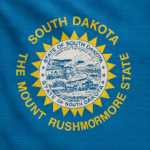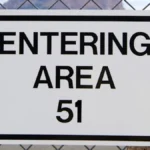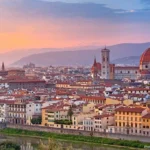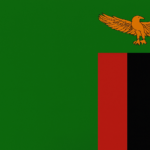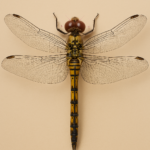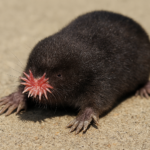
The state of Alabama is located in the southeastern United States. It shares state lines with Georgia, Florida, Mississippi, and Tennessee. It is the 23rd most populous state with more than 4.8 million inhabitants. Before the European colonization of the area, Alabama was inhabited by several Spanish explorers who came to Alabama in the 16th century. More than 160 years later, in 1711, the French settled in Old Mobile. Mobile Alabama is the oldest city in Alabama. Several battles, including the Seven Years War and the American War of Independence, divided Alabamas. Alabama was admitted to the union in 1819 and became the 22nd state.
The Black Pearl was built in Alabama. One of the pirate ships featured in Disney’s “Pirates of the Caribbean” film franchise was built at Steiner Shipyard in Bayou La Batre.
European explorers originally named the region Alibamu, which was the name of a local Indian tribe.
Alabama once had wooden roads. In 1849, the first plank road in the country was built by Daniel Pratt for the public and for transportation from his Pratt Cotton Gin to the Alabama River.
Alabama’s state bird is the yellowhammer. Alabama’s nickname is the ‘Yellowhammer State’.
Dred Scott, whose name is associated with the landmark U.S. Supreme Court Dred Scott Decision of 1857, worked in Alabama.
Alabama’s state song is ‘Alabama’, with words written by Julia S. Tutwiler and music written by Edna G. Gussen.
Two of North America’s rarest species—the Perdido Key beach mouse and the Alabama beach mouse—hide out in Alabama.
The state dance is the square dance.
Bamboo and mistletoe grow in the state as well as other parts of the country, but the carnivorous Alabama canebrake pitcher plant, the Alabama gladecress, and the Cahaba prairie-clover can only be found here.
Alabama’s state insect is the monarch butterfly.
About 70 percent of Alabama is covered in forests, so it’s no wonder the state is known for its timber.
Alabama’s flower is the Camellia.
Alabama’s vast forests would cover Rhode Island, Delaware, Massachusetts, New Jersey, and Connecticut!
Alabama’s state nut is the pecan.
Alabama is also rich in limestone, coal, and iron ore, which are the three raw materials needed to make steel.
Alabama’s motto is Audemus jura nostra defendere, which means ‘We Dare Defend Our Rights’.
Famous Alabamans include country singer Hank Williams, educator Booker T. Washington, inventor George Washington Carver, jazz singer Nat “King” Cole, and author Harper Lee.
Alabama’s largest city is Birmingham.
The Alabama climate is temperate, with an average annual temperature of about 64 °F (18 °C), mellowed by altitude to some 60 °F (16 °C) in the northern counties and reaching 67 °F (19 °C) in the southern counties, although summer heat is often alleviated somewhat by the winds blowing in from the Gulf of Mexico.
There are 67 counties in the State of Alabama, as well as 21 state forests and 22 state parks.
The average summer temperature is 79 °F (26 °C); the winter average is 48 °F (9 °C).
Alabama has been the site for many civil-rights actions, including the famous Rosa Parks incident in Montgomery.
Bluebirds, cardinals, blue jays, mockingbirds, doves, woodpeckers, owls, hawks, yellow-shafted flickers (called yellowhammers in Alabama), and an occasional eagle are found here.
Alabama’s industries today include paper, lumber, mining, rubber and plastic and transportation.
Alligators still exist in some of the swamps and bayous of the coastal regions, notably in the Mobile River delta.
The first rocket to take people to the moon was built by Alabamian employees. The rocket capital of the world is Huntsville Alabama.
The great majority of the state’s population is of European ancestry (white), descended primarily from 19th-century settlers who came from adjoining regions to the east and north.
The very first electric trolley system was introduced in Montgomery in 1886.
Alabamians of African descent (Black) comprise about one-fourth of the population and largely trace their ancestry in the state to the days of slavery.
Soybeans, milk, peanuts, cotton, poultry, eggs and cattle are grown in Alabama.
Other ethnic minorities, as well as foreign-born residents, make up only a small proportion of Alabama’s population.
Alabama is made up geographically of hills, mountains, broken terrain and coastal plains.
Religious affiliations in the state of Alabama are overwhelmingly Christian and predominantly Protestant, with large groups of Baptists and Methodists.
Helen Keller, the famous author and lecturer who was both blind and deaf from age two, was born in Tuscumbia.
Among the 50 states, Alabama is relatively poor, and median family income has remained well below the national average.
The Confederate flag was designed in Alabama and was also first flown there in 1861.
Industrial development in Alabama is historically rooted in the iron and steel industry of Birmingham, the development of which was facilitated by accessible deposits of iron ore, coal, and limestone.
The remains of a pre-historic man were found in Russell Cave, in Alabama.
The bulk of Alabama’s electric power is generated by thermal plants, the great majority of which are coal-fired.
There is a five mile wide crater impact from a meteorite in Elmore County. It is the Wetumpka Crater site and considered to be ‘Alabama’s greatest natural disaster, believed to have occurred approximately 80 million years ago.
The number of non-U.S. companies operating industries in Alabama greatly multiplied beginning in the late 20th century.
Alabama experiences some of the hottest summer in the United States, especially in the southern parts of the state which are in close proximity to the Gulf of Mexico. The southern tip of Alabama is Gulf of Mexico shoreline.
In the 1990s Alabama attracted its first automobile manufacturing plants, one near Tuscaloosa and the other near Talladega, both of which were built by foreign corporations.
Hurricane Katrina, a devastating hurricane that occurred in 2005, caused major destruction along Alabama’s coast. Mobile experienced major flooding, with 11 feet of water.
Alabama has generally low taxes on property and comparatively high taxes on consumption and spends a significant percentage of its total revenue on education, health and hospitals, welfare, and highways.
There is a famous band named ‘Alabama’. There is a museum for the band, and a fan club, in Fort Payne.
Alabama are maintained by the federal government, including the Air University in Montgomery, the Marshall Space Flight Center and the Redstone Arsenal in Huntsville, several veterans’ hospitals, and a part of the TVA operations.
Alabama was the birth place of many famous athletes, including boxer Joe Louis, and the baseball players Willie Mays and Hank Aaron.
Together, the six major rivers of Alabama provide about 1,300 miles (2,100 km) of navigable waterways.
Mardi Gras, the celebration held on Shrove Tuesday, was introduced to North America in Alabama.

